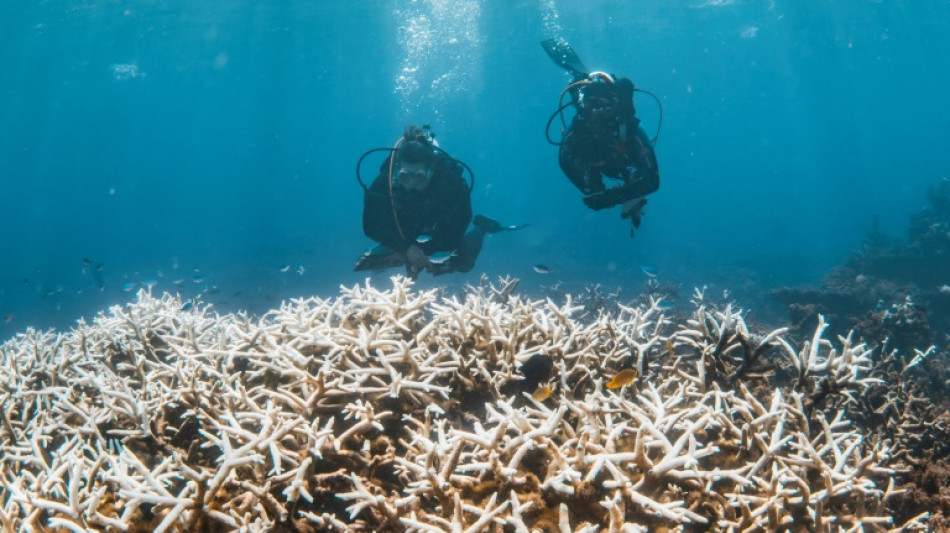
-
 Arsenal villain Martinelli turns FA Cup hat-trick hero
Arsenal villain Martinelli turns FA Cup hat-trick hero
-
Syrians in Kurdish area of Aleppo pick up pieces after clashes

-
 Kohli hits 93 as India edge New Zealand in ODI opener
Kohli hits 93 as India edge New Zealand in ODI opener
-
Trump tells Cuba to 'make a deal, before it is too late'

-
 Toulon win Munster thriller as Quins progress in Champions Cup
Toulon win Munster thriller as Quins progress in Champions Cup
-
NHL players will complete at Olympics, says international ice hockey chief

-
 Leeds rally to avoid FA Cup shock at Derby
Leeds rally to avoid FA Cup shock at Derby
-
Rassat sweeps to slalom victory to take World cup lead

-
 Liverpool's Bradley out for the season with 'significant' knee injury
Liverpool's Bradley out for the season with 'significant' knee injury
-
Syria govt forces take control of Aleppo's Kurdish neighbourhoods

-
 Comeback kid Hurkacz inspires Poland to first United Cup title
Comeback kid Hurkacz inspires Poland to first United Cup title
-
Kyiv shivers without heat, but battles on

-
 Salah and fellow stars aim to deny Morocco as AFCON reaches semi-final stage
Salah and fellow stars aim to deny Morocco as AFCON reaches semi-final stage
-
Mitchell lifts New Zealand to 300-8 in ODI opener against India

-
 Iran protest death toll rises as alarm grows over crackdown 'massacre'
Iran protest death toll rises as alarm grows over crackdown 'massacre'
-
Malaysia suspends access to Musk's Grok AI: regulator

-
 Venezuelans await release of more political prisoners, Maduro 'doing well'
Venezuelans await release of more political prisoners, Maduro 'doing well'
-
Kunlavut seals Malaysia Open title after injured Shi retires

-
 Medvedev warms up in style for Australian Open with Brisbane win
Medvedev warms up in style for Australian Open with Brisbane win
-
Bublik powers into top 10 ahead of Australian Open after Hong Kong win

-
 Sabalenka fires Australian Open warning with Brisbane domination
Sabalenka fires Australian Open warning with Brisbane domination
-
In Gaza hospital, patients cling to MSF as Israel orders it out

-
 New protests hit Iran as alarm grows over crackdown 'massacre'
New protests hit Iran as alarm grows over crackdown 'massacre'
-
Svitolina powers to Auckland title in Australian Open warm-up

-
 Keys draws on happy Adelaide memories before Australian Open defence
Keys draws on happy Adelaide memories before Australian Open defence
-
Scores of homes razed, one dead in Australian bushfires

-
 Ugandan opposition turns national flag into protest symbol
Ugandan opposition turns national flag into protest symbol
-
Bears banish Packers, Rams survive Panthers playoff scare

-
 'Quad God' Malinin warms up for Olympics with US skating crown
'Quad God' Malinin warms up for Olympics with US skating crown
-
India eyes new markets with US trade deal limbo

-
 Syria's Kurdish fighters agree to leave Aleppo after deadly clashes
Syria's Kurdish fighters agree to leave Aleppo after deadly clashes
-
New York's Chrysler Building, an art deco jewel, seeks new owner

-
 AI toys look for bright side after troubled start
AI toys look for bright side after troubled start
-
AI pendants back in vogue at tech show after early setback

-
 Grateful Dead co-founder and guitarist Bob Weir dies aged 78
Grateful Dead co-founder and guitarist Bob Weir dies aged 78
-
Myanmar votes in second phase of junta-run election

-
 'One Battle After Another' heads into Golden Globes as favorite
'One Battle After Another' heads into Golden Globes as favorite
-
Rams survive Panthers scare to advance in NFL playoffs

-
 Rallies across US after woman shot and killed by immigration agent
Rallies across US after woman shot and killed by immigration agent
-
Egypt dump out holders Ivory Coast as Nigeria set up AFCON semi with Morocco

-
 Rosenior salutes 'outstanding' start to Chelsea reign
Rosenior salutes 'outstanding' start to Chelsea reign
-
Maduro loyalists stage modest rally as Venezuelan govt courts US

-
 Byrne late penalty fires Leinster into Champions Cup last 16 after 'ding-dong' battle
Byrne late penalty fires Leinster into Champions Cup last 16 after 'ding-dong' battle
-
Rosenior makes flying start as Chelsea rout Charlton in FA Cup

-
 Rallies across US against shooting of woman by immigration agent
Rallies across US against shooting of woman by immigration agent
-
Salah closer to AFCON glory as Egypt dethrone champions Ivory Coast

-
 O'Neil ends 'crazy three days' with Strasbourg cup canter
O'Neil ends 'crazy three days' with Strasbourg cup canter
-
Mitchell leads Cavs over T-Wolves

-
 O'Neil ends 'crazy few days' with Strasbourg cup canter
O'Neil ends 'crazy few days' with Strasbourg cup canter
-
Argentina wildfire burns over 5,500 hectares: governor


Great Barrier Reef suffers most widespread bleaching on record
Australia's famed Great Barrier Reef has suffered its most widespread coral bleaching on record, according to a government report released Wednesday that warns the natural wonder is in dire health.
Scientists documented the "most spatially extensive" bleaching since records began almost 40 years ago, driven by sweltering ocean temperatures in 2024 that triggered "unprecedented levels of heat stress".
The Australian Institute of Marine Science surveyed the health of 124 coral reefs between August 2024 and May 2025.
Northern and southern branches of the sprawling reef had seen the "largest annual decline in coral cover" ever recorded, the government agency found.
Reefs had been battered by tropical cyclones and infestations of crown-of-thorns starfish that feast on coral.
But the "number one cause is climate change," said the institute's research lead Mike Emslie.
"There is no doubt about that," he told AFP.
Often dubbed the world's largest living structure, the Great Barrier Reef is a 2,300 kilometre (1,400-mile) expanse of tropical corals that houses a stunning array of biodiversity.
But repeated bleaching events have threatened to rob the tourist drawcard of its wonder, turning banks of once-vibrant coral a sickly white.
Unusually warm tropical waters triggered widespread coral bleaching on the Great Barrier Reef in 2024 and in the first few months of 2025 -- the sixth such event in the past nine years.
"The (Great Barrier Reef) experienced unprecedented levels of heat stress, which caused the most spatially extensive and severe bleaching recorded to date," the report found.
Over the past two years a mass global bleaching event has drained the life from more than 80 percent of the world's coral reefs.
Bleaching occurs when water temperatures rise forcing coral to expel the colourful microscopic algae, known as zooxanthellae, embedded in their tissues.
If high temperatures persist, the coral can eventually turn white and die.
Emslie said past coral growth would help cushion the record losses and that the Great Barrier Reef was still an "amazing place".
- 'Worth fighting for' -
"It is still worth fighting for. We can't throw our arms up and give up," he said.
The report found a rapidly growing type of coral -- known as acropora -- had suffered the most.
This coral is quick to grow, but is also one of the first to bleach.
The report found that any recovery of the reef could take years and was dependent on future coral reproduction and minimal environmental disturbance.
Richard Leck from the World Wildlife Fund compared the fluctuating health of the Great Barrier Reef to a "rollercoaster".
"That is a sign of an ecosystem under incredible stress and what reef scientists are hugely concerned about is when the reef does not keep bouncing back the way it has," he told AFP.
Leck said some coral reefs around the world were already beyond recovery, warning the Great Barrier Reef could suffer the same fate without ambitious and rapid climate action.
The average sea surface temperature around Australia was the "highest on record" in 2024, according to Australian National University.
Australia is currently developing its next round of emissions reduction targets, a key obligation under the landmark Paris climate agreement.
The mining superpower remains one of the world's biggest coal exporters and continues to heavily subsidise its fossil fuel sectors.
Y.AlMasri--SF-PST


